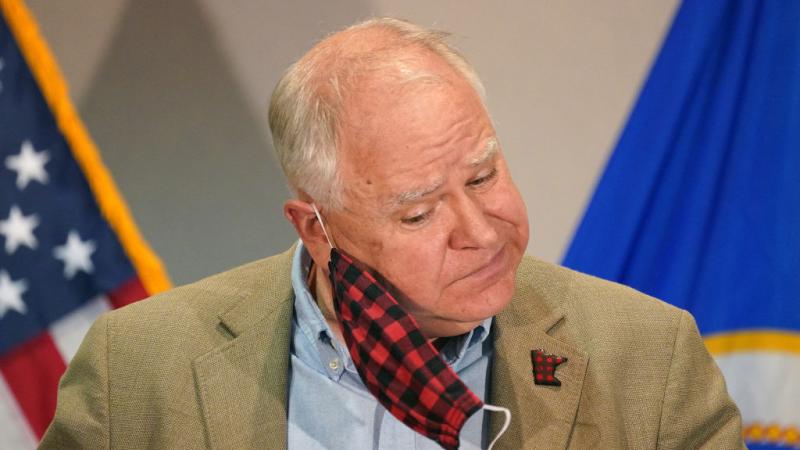With $500 million at risk, Brown University escalates probe of student journalist for mini-DOGE
Ivy League school makes public some of the employee information it accused Alex Shieh of "improperly" using, civil liberties group says. Threat letter says he spread false information, without noting it's from New York Times.
A president restricted the White House privileges of a news service for refusing to use his preferred term for a body of water and got blocked in court for doing so.
Brown University faces similar legal peril for threatening to discipline a student because, speaking on behalf of an unregistered student newspaper, he sent thousands of administrators a version of Department of Government Efficiency "what did you do last week?" emails and devised an algorithm to rate their jobs for efficiency and legal risk.
After Alex Shieh's "Bloat@Brown" project took aim at the diversity, equity and inclusion staff he blamed for the suspension of $510 million in federal money, the Ivy League school ramped up its rhetoric against the student journalist, summoning him to an "administrative review meeting" to answer allegations of "misrepresentation" and "violation of operational rules."
But without explanation, Brown dropped one of the initial charges, "emotional harm," and backtracked on the nature of the "employee information and data" Shieh posted, now implying it wasn't in fact confidential.
Shieh has maintained Bloat@Brown is based on the school's "internal org chart" of employee relationships, and the website says the algorithm scours public sources such as university pages, "articles, LinkedIn pages, job postings, etc."
"Unreal," DOGE cheerleader Elon Musk responded Wednesday when Shieh directed his followers to pressure Brown President Christina Paxson, Executive Vice President for Planning and Policy Russell Carey and Associate Dean and Associate Director of Student Conduct & Community Standards Kirsten Wolfe to back down. "If Brown kicks me out can I work for DOGE[?]" Shieh answered.
Shieh told The Washington Times he's contemplating legal action if Brown puts him on probation, which could limit his participation in campus activities. He told Just the News he's meeting with the administrative reviewer next week.
"In spite of what has been reported publicly framing this as a free speech issue, it absolutely is not," Vice President for News and Strategic Campus Communication Brian Clark wrote in an email that did not answer Just the News questions about its allegations.
"At the center of Brown's review are questions focused on whether improper use of non-public Brown data, non-public data systems and/or targeting of individual employees violated law or policy," he said. (Brown's most recent known letter doesn't mention targeting.)
Its "detailed procedures" will "guide" its investigation, resolution and disciplinary actions "when students are found responsible," and they have "ample opportunity" to participate and "ensure that all decisions are made with a complete understanding of the circumstances."
The fight with Brown has only whet the appetite of the Asian-American student, who first rose to media attention criticizing racial preferences in college admissions, to expose what he considers bloat at Brown's peers.
Shieh announced the "Ivy League Bloat Tracker" on Wednesday, starting with DOGE-like emails to Columbia, Cornell and University of Pennsylvania administrators, to be followed by Harvard. It lets users filter lists of employees for DEI roles and send cease-and-desist letters alleging federal civil rights violations using Grok, the artificial intelligence chatbot.
'Some' employee data 'may well have been used'
The Foundation for Individual Rights and Expression, which is in touch with Shieh but not formally representing him, showed Just the News the April 7 letter from Wolfe that's mentioned but not posted in the Times article.
The letter has the hallmarks of lawyer phrasing, creating the impression of a serious breach of employee confidentiality without literally saying the data are confidential.
Shieh allegedly created Bloat@Brown "by improperly using Brown University employee information and data obtained from Workday, a proprietary and confidential University data and information system, that was not publicly available and the use of which is governed by" its acceptable use policy for information technology, Wolfe wrote.
The March 20 letter he first received gave a less specific allegation: that Shieh accessed an unnamed "proprietary" university system with "confidential human resources, financial, and student information" and used it for the website.
The April 7 letter repeats the original allegation that "you misrepresented yourself to University officials as a reporter for a recognized student organization that is not currently operating." Bloat@Brown is hosted at the Brown Spectator, a defunct conservative-libertarian newspaper that Shieh has said is relaunching "this semester."
FIRE also shared Wolfe's 23-page redacted document of purported evidence against Shieh, most of it "user activity" and "audit trail" logs credited to "Respondent," meaning Shieh.
The Office of Information Technology previews the evidence by acknowledging the respondent had legitimate access to Workday and conceding it can't in fact trace the activity to him.
The flagged account "had rarely interacted with Workday" except on Feb. 25, when it "downloaded some files associated with the organizational chart associated with [Person 1]," it says, redacting the name, and March 1, when it viewed "organizational data" associated with Person 2 and "position information" with Persons 1-4.
"From our testing, we confirmed that any user with access to Workday has the ability to view and download an organizational chart of everyone under a certain individual," which on Feb. 25 "most likely contained a complete organization chart for all employees at Brown," OIT says. The respondent's account "removed the created reports" so OIT isn't sure what the data was.
"To the best of our knowledge, Workday is the only system of record which includes the following non-public data: Workday ID, reporting structure, work location, and legal name," OIT says. "Some of this information may well have been used in the construction of the website [Bloat@Brown], mainly reporting structure and work location."
The rest of the evidence letter lists the two remaining charges, the full text of the IT policy and a Student Activities Office summary of the Spectator's history and the steps it would have to take to again become a "recognized student organization," the basis for the misrepresentation charge against Shieh.
A day before Wolfe's meeting, executive VP Carey warned Shieh that failing to remove false statements on his webpage would result in Brown taking disciplinary action.
Bloat@Brown identified 49 employees "potentially holding illegal DEI roles" and said they "lost" the university "$510 million in federal funds," which constitute "false information" unprotected by Brown's freedom of expression pledge, Carey wrote.
"At this time, Brown has not received any notification from the federal government of the loss of funding you have claimed, and Brown has made that clear in its public statements," Carey wrote, without noting the basis for the website's claim: a New York Times report three days earlier, attributing the planned cutoff to White House officials.
"Nor has Brown received any notification from the federal government that the staff members you have listed as 'Suspect' on your website" — for their DEI roles — "are responsible for any potential or actual loss of federal funding" or their positions may be illegal, Carey wrote, again omitting the Trump administration's actions against DEI in higher education.
"If you have used Al searches to reach a personal opinion about the latter, you should make that clear," and if not, "remove all false statements from your website immediately" or face "appropriate action to enforce the Code of Conduct," Carey wrote.
'Nonsensical' argument would block student reporters for mainstream media
FIRE reached out directly to Paxson on Wednesday after publicly castigating the school last month for allegedly chilling student expression and violating its own rules in earlier missives to Shieh, including by accusing him of a code violation for behavior that "can reasonably be expected to result in significant emotional or psychological harm."
Brown itself has released false information even as it accuses Shieh of spreading falsehood, campus rights advocacy program officer Dominic Coletti told Paxson, pointing to its claim that "no news article resulted" from Shieh's DOGE-like emails.
Just because Shieh's reporting "annoyed" some employees doesn't make it unprotected by Brown's free expression promises, and even investigating conduct not covered by those promises must abide by its "due process commitments," Coletti wrote.
Brown is also bound by Rhode Island's New Voices Act that protects student journalists, Shieh's claim about losing $510 million was "substantially true" and protected by Brown's own policies, and the university still cannot punish false speech except for narrow exceptions "such as defamation or fraud," the letter says.
Coletti mocked the "nonsensical" argument that the Spectator must be registered for Shieh to associate with it, which would also apply to any student writing for the state's largest newspaper, the Providence Journal.
Even for "legitimately punishable" conduct, Brown's written policies "and the most basic principles of procedural due process" require the university to disclose "what aspect of the IT policy he allegedly violated" so he can prepare a defense, Coletti said.
Its paltry evidence also doesn't explain how Shieh could have publicized "non-public" information that Brown itself promotes, such as "a public directory and public organizational charts for various departments," the letter says.
The Facts Inside Our Reporter's Notebook
Videos
Links
- blocked in court for doing it
- Department of Government Efficiency "what did you do last week?" emails
- Alex Shieh's "Bloat@Brown" project
- diversity, equity and inclusion staff
- suspension of $510 million in federal money
- "Unreal," DOGE cheerleader Elon Musk
- Shieh directed his followers to pressure
- Shieh answered
- The Washington Times
- "Ivy League Bloat Tracker"
- March 20 letter he first received
- Bloat@Brown is hosted at the Brown Spectator
- Shieh posted it at the time
- New York Times
- Trump administration's actions against DEI in higher education
- FIRE reached out directly to Paxson
- publicly castigating the school
- its claim that "no news article resulted"















